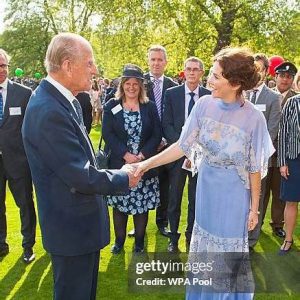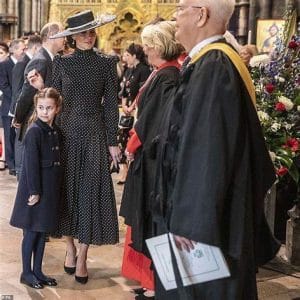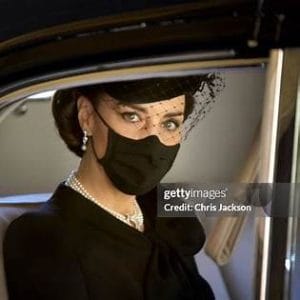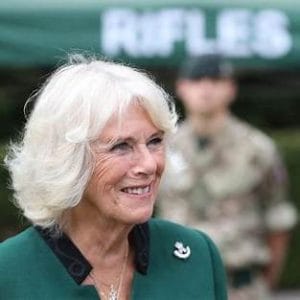Behind the stone walls of Windsor Castle — a place where centuries of royal tradition and untold stories are guarded — one question lingers: What did Prince Philip truly wish for before his passing?
Recently, several unverified reports have claimed that in his final days, Prince Philip secretly selected Princess Catherine, rather than Queen Camilla, for a symbolic royal role tied to his legacy. If true, this choice would mark a subtle but significant shift in royal influence and future succession dynamics.
But what is fact, and what is fiction? And could the answer lie within the tightly sealed royal vault, where his will remains hidden from public view?

🧾 The Sealed Will: A Rare Royal Decision
Unlike most high-profile figures whose wills are eventually made public, Prince Philip’s final testament has been legally sealed for 90 years, by order of the UK’s High Court in 2021. This extraordinary move ensures that the contents of the will remain confidential — possibly until the end of the century.
📁 The official reason? To “protect the dignity and privacy of the sovereign and senior members of the Royal Family.” But to many observers, this level of secrecy only intensifies the public’s curiosity. Could his final wishes have been so sensitive that they required near-century-long protection?
👑 The Official Ceremony — and the Quiet Rumors That Followed
In July 2020, just months before his passing, Prince Philip made a rare public appearance at Windsor Castle to formally hand over the role of Colonel-in-Chief of The Rifles regiment to Camilla, then Duchess of Cornwall. The ceremonial transfer was documented and celebrated across official royal channels and media outlets like BBC, Town & Country, and Royal.uk.
🎖️ It was a clear, public endorsement of Camilla’s growing stature within the royal family.
And yet, some sources now claim that privately, Philip had a broader vision — and it involved Catherine. According to these reports, he admired her ability to connect with the younger generation, and believed she was the ideal candidate to carry forward the values of duty, service, and legacy.
Although no documentation supports this, the theory has gained traction — largely because it fits a narrative many already believe: Catherine is quietly emerging as the modern monarchy’s most influential figure.

👸 Catherine: The Quiet Power in a Changing Royal Family
From a commoner who married into royalty to now being Princess of Wales, Catherine has steadily built a reputation of grace, resilience, and relevance. Her work reflects core royal values — but with a distinctly modern touch. She plays leading roles in:
-
The Duke of Edinburgh’s Award — a youth program founded by Prince Philip in 1956
-
Mental health and early childhood development campaigns
-
Royal patronages connected to military units and community outreach
Her calm presence, meaningful engagement, and impeccable public image have made her one of the most respected royal figures today.
So perhaps Prince Philip’s “true wish” isn’t written in ink, but is being fulfilled in action.

🕯️ A New Generation, A Living Legacy
While Camilla is now officially Queen Consort, a title publicly supported by Queen Elizabeth II, there’s no denying that Catherine embodies the image of the monarchy’s future.
In recent UK polls (YouGov UK), Catherine consistently ranks among the top three most popular royals — alongside Prince William and the late Queen. Her growing influence is widely seen as not only well-deserved but also essential for the monarchy’s evolution in a changing world.
Behind the scenes, she is said to be actively involved in causes once led by Prince Philip, quietly reinforcing the idea that his legacy continues — through her.

🧩 The Unanswered Question: Who Was Truly Chosen?
We may not know what Prince Philip wrote in his will — not until 2111, at the earliest.
But as Catherine takes on more public and symbolic roles, especially those once aligned with Philip’s values and causes, the world can’t help but wonder:
🕰️ Is there a silent transfer of trust happening behind closed doors?
🤫 Could the true legacy not be a title, but a torch passed from one generation to the next — without a single word spoken?